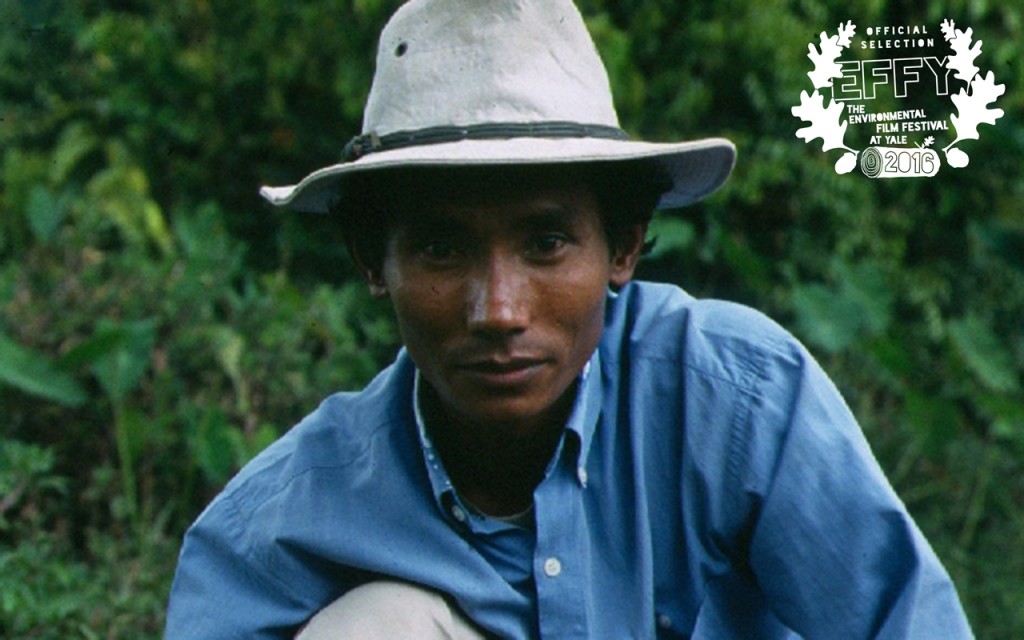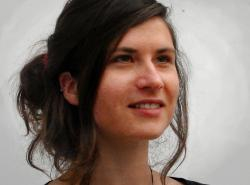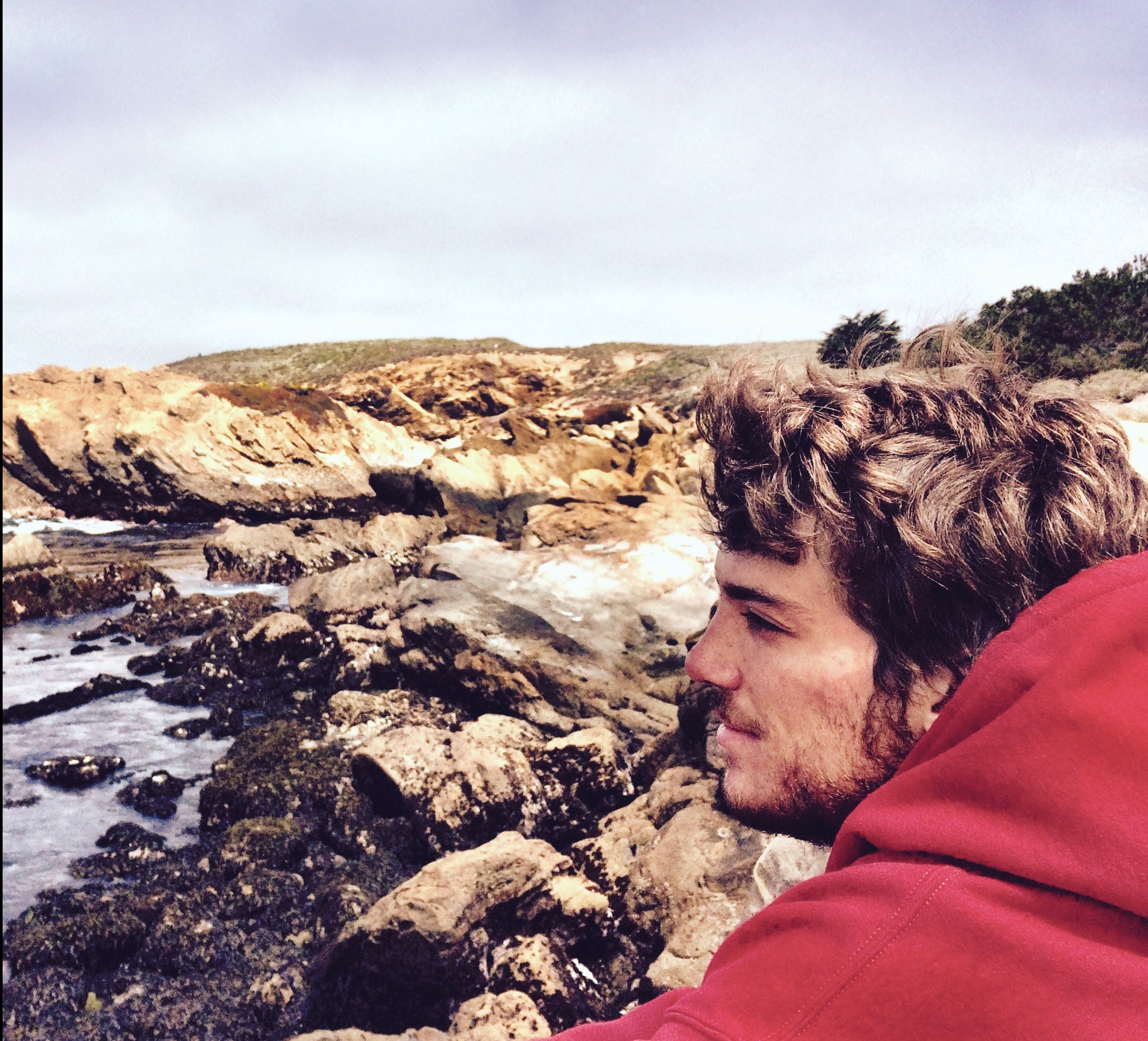By Jordan Gardner
Chut Wutty was a Cambodian environmental activist in the Prey Lang forest. He led the Natural Resource Protection Group, protesting illegal deforestation and military involvement in protected forest areas. After confrontations with the military, Chut Wutty was shot and killed. Telling the story of the activist’s dedication to protect Cambodian forests and the livelihoods dependent upon them, filmmaker Fran Lambrick spoke to Wutty just before his death—and followed the Prey Lang Network’s response in the wake of his murder. Dr. Lambrick has researched and worked in the Prey Lang forest since 2009.
JG: Looking back, what was it like talking to this Cambodian activist just before he was killed?
FL: It was wonderful and terrifying. I feel very lucky that I got to meet Wutty – he was immediately engaging, asking questions, full of energy and with a very clear purpose. He was quiet but audacious. And it was scary because Wutty was attacked the day I met him. We were at a Prey Lang Network protest in the forest – 500 people occupied an economic land concession and and burnt huge piles of illegally cut timber. I was sitting with Wutty, a bit away from the others, and we saw the military trucks arrive. Wutty guessed they were after him, "Shall I run away? – But where would I go." He hesitated and decided to stay – "Well, I'd like to see what they do". They came up behind us – I snapped photos, as the conversation got more heated, suddenly the soldier grabbed Wutty around the neck and threw him to the ground. Military police and soliders surrounded us, looking up I saw a pistol and an AK47 pointed at us. I moved backwards into the crowd, and at the same time the network rushed forward, a handful of men and women bare-handed rushed in front of the guns and pulled Wutty out of the soldiers' grip.
Later in the village guest house, I was waiting for gunshots. Soldiers sat outside all night, but they never broke in. It took a few weeks for me to find the courage to interview Wutty a second time, at his office in Phnom Penh. He looked better – less harrowed, but still somehow taut. Looking back I wished I had asked him more personal questions – but also I know that it is the way he wanted it. Talking to Wutty he always made it clear that the story wasn't really about him – it is the story of the forest, the communities, the long fight for independence. He had such courage because he was focused on ending injustice.
JG: How did you approach telling the story of Chut Wutty through film?
FL: I always wanted the film to show more than to tell. Even before I met Wutty, I wanted the film to be quiet in a sense, without narration, but showing the story as it was unfolding – with voices of the people involved. Film is very powerful visually – you can do as much to depict a character or an atmosphere with one intimate shot of a person's face as you can with a long interview clip.
To show the events when Wutty was killed we wanted to create a sense of immediacy, of being with Olesia and with Wutty, but we didn't have the footage to show that, so we decided to use animation. We were very lucky to work with art director and animator Septiawan Putra, who created a gritty, stylised depiction of the scene. Cutting from the animation to the real photos after the shooting gives a sudden tragic sense of the reality.
We also wanted to build in as much lightness and small but telling interactions as we could – even humour. So we had a part where Wutty is interacting with the network to plan their campaign, and he teases one of the members who is acting shy.
JG: Do you as a filmmaker have a responsibility to culture? Does it require you to tell a particular story? Why or why not?
FL: I have a responsibility to people as a filmmaker. I feel a responsibility to tell the story of the people who I film in the way that they would want it to be told, to represent them fairly, and to show my own experience transparently. I don't think there is ever any requirement to tell a particular story – there is only motivation or compulsion. I am moved to tell a story because I see the experiences and the feelings of the people living it. The only principle that guides that motivation is honesty, which doesn't exclude creativity or interpretation, or even manipulation in certain ways.
JG: What do you think the biggest surprise about the process would be to an outsider?
FL: I think the hardest thing to explain, perhaps surprising to an outsider, is the strange process of telling a story with film – especially a real story. It's like you have to have a strong idea in your mind of what you want to tell when you start out, and you have to cling on to that otherwise you would get lost in endless possibilities. But at the same time events are happening and threaten to knock you off course, the story changes as your telling it, so there's a kind of dance of holding fast to the idea and responding as things happen. – A documentary is like finding a wild animal, and you can sort of make out a path through the forest, you're trying to cling on to the animal as it chases down the path – as far ahead as you can see. But you could get thrown off, or kicked, or lose the path, – you have to hold on to the direction in your mind, but also respond to what happens.
JG: What are some of the platforms you find effective in reaching people?
FL: I like meeting people best, I think that nothing compares to face-to-face discussion. But the internet is wonderful for sharing stories too.
We are building a campaign from the film, using story-telling to spread awareness about the risks faced by environmental defenders around the world, starting with Cambodia – with Chut Wutty's story and the violent attacks on Cambodia's forest defenders, to the current situation, where we have three young activists in jail, facing trumped up charges and held in a cell with about 12 others – each with less than 0.5 meter square of living space, 20 hours a day.
These are young activists in their twenties, they are the activists continuing Chut Wutty's fight. Last week I asked one of their group, why do you do this work to protect the environment – he said "It is because of love. Love that is not to say, a way of speaking, or an intellectual ideal, it is really from my heart, for nature."

















